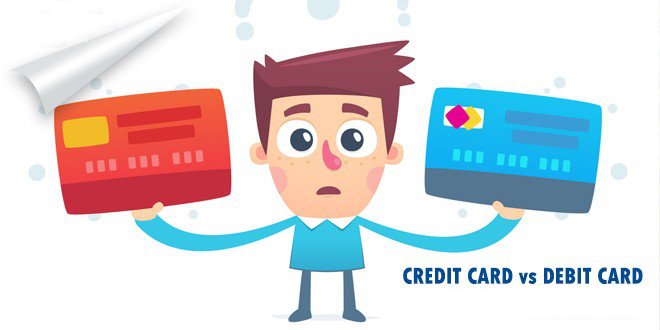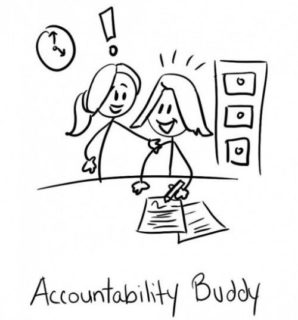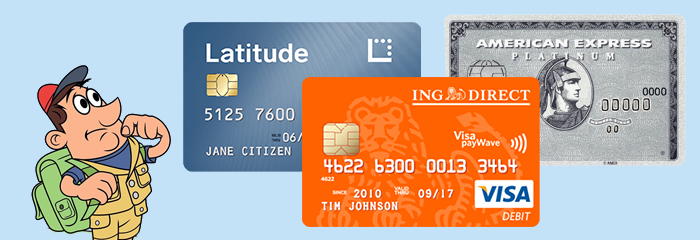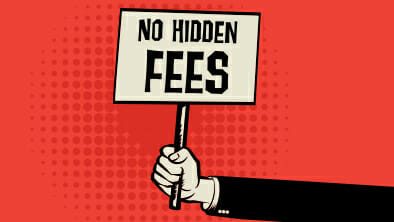Credit Cards
I’ve mentioned credit and debit cards in recent newsletters and mentioned how I had moved from the Latitude credit card to the ING debit card. Several readers have asked me to elaborate, so in this newsletter I will focus on both credit cards in general and international transaction cards as well.
One of the key factors that makes the new edition of Making Money Made Simple different to the previous ones is my focus on two key points that will almost guarantee financial success for anybody. The first is to stop using credit cards and use debit cards instead. Credit cards are like warm salted cashews, once you get the taste you just keep on going. Let’s face it, the main reason most people get into financial strife, is living beyond their means, and for most people that means they use the credit card just to get by.

Think about it – if you cannot pay the full balance of your credit card each month you are paying unnecessary interest, probably at around 20%, and are also not living within your means. The problem with relying on credit cards is that even the minimum payment comes out of future earnings, which makes living within your means even more difficult. You then rack up more debt on the credit card, and the situation gets worse and worse and quickly you find yourself on the debt treadmill. And once you’re on that road it’s hard to get off it.
Some people argue that they use credit cards to get points. I have no trouble with that, if you are paying your card in full every month and living within your means – but you are a minority. This will becomes even more important soon with Christmas coming up. Also, the reality is that the value of points is being debased continually, and the only effective way to use them is for flights. But flights can be hard to get especially when the holiday season comes around.

I can guarantee you two things with credit cards. Unless you are extremely disciplined, which puts you in 5% of the population, the balance at the end of each month will be more than you thought it was going to be, and furthermore spending money on a credit card never feels like spending real money. It’s the opposite with cash. Recently I withdrew some money from an ATM, and happened to get a $100 bill in the cash out. It looked brand spanking new, but given that the signature on the note belonged to Ken Henry I reckon the note had been in circulation for a long time – it’s been eight years since he left the role of Secretary to the Treasury. But can you believe I can’t bear the thought of spending it – this is in total contrast to using a credit card. I can swipe a credit card and spend $100 or more without blinking an eye.
 So, the first essential is to get rid of the credit card – the other essential is to get some sort of financial buddy. This could be a partner, workmate, parent, child or anybody else with whom you relate well and who has a common goal with you to be financially successful. Remember in Think and Grow Rich one of the 13 essential steps to success was to be part of a mastermind group, which for many people is their partner.
So, the first essential is to get rid of the credit card – the other essential is to get some sort of financial buddy. This could be a partner, workmate, parent, child or anybody else with whom you relate well and who has a common goal with you to be financially successful. Remember in Think and Grow Rich one of the 13 essential steps to success was to be part of a mastermind group, which for many people is their partner.
Once you free yourself the tyranny of the credit card, and start having regular goalsetting meetings with a person who shares your values, you’ll be amazed how quickly you will start to speed down the road to financial success. Remember, more than 50% of Australians suffer stress because of financial problems. You don’t need to be among them.
Using credit cards overseas.

We have been travelling overseas for more than 40 years, and it’s been a learning experience. In the old days we used travellers cheques, but they are really obsolete now, and once I withdrew cash in foreign currencies to take with me, I find I don’t need cash in my wallet any more when I am overseas, and if I do need say €50 I can use my ING debit card and withdraw the money with no fees at any ATM.
I tried those prepaid travel cards for a while but then discovered the rates the banks were charging were horrendous, so I gave them up. I then moved to the 28th MasterCard, which has been rebadged as the Latitude MasterCard, because they offered a good exchange rate, had no annual fees, and did not charge the horrendous commissions of companies such as American Express.
I had been using the ING debit card for years, purely for the convenience of being able to withdraw money at any ATM in Australia with no fees. But last year we were checking into a hotel in London and because of some computer hiccup my 28° card got charged twice and ended up being frozen. There was no way I was going to use American Express, so I fell back on the ING debit card.
 And that’s when I discovered all the hidden international commissions were being rebated by ING as I made each transaction. Their phone app is very good, and the transaction appears on your phone immediately in Australian dollars – and within 24 hours the international fee rebate appears as well. It was working brilliantly on our last trip until right at the end when ING sent me a text to tell me a suspicious transaction had taken place. I rang them as instructed, and confirmed it was shonky. This meant the ING card was cancelled, and I fell back on the 28° MasterCard which I carry as a backup.
And that’s when I discovered all the hidden international commissions were being rebated by ING as I made each transaction. Their phone app is very good, and the transaction appears on your phone immediately in Australian dollars – and within 24 hours the international fee rebate appears as well. It was working brilliantly on our last trip until right at the end when ING sent me a text to tell me a suspicious transaction had taken place. I rang them as instructed, and confirmed it was shonky. This meant the ING card was cancelled, and I fell back on the 28° MasterCard which I carry as a backup.
When I travel overseas now I have three cards. The ING debit card for everyday use, the 28° MasterCard as a backup, and an American Express card. The purpose of the American Express card is to use as the guarantee card when you check in at a hotel. Every hotel will ask for a credit card to be held on file to guarantee your transactions, but they may well put a hold of $2000 or more on that card even if it is not being used. And I have found out to my horror, once that happens, your 28° MasterCard or your ING debit card can be taken up to the limit of available funds and cannot be used. So, yes, I do use the American Express card but never allow an overseas transaction to be made on it. When we check out of the hotel, we simply use the ING card.
What is fantastic about using a debit card for travel, is that we never come home to a bill. In the “good old days” we lived in fear and trepidation after arriving home because we had no idea what the balance could be on the credit card. Now as we get off the plane, we are secure in the knowledge that no nasty credit card bills will be coming in the future.
This is been a rather long treatise about credit cards and debit cards but I do think that the main reason most Australians are in trouble financially is the use of the credit card. Once they no longer have one, it becomes almost impossible to spend more than you earn.
